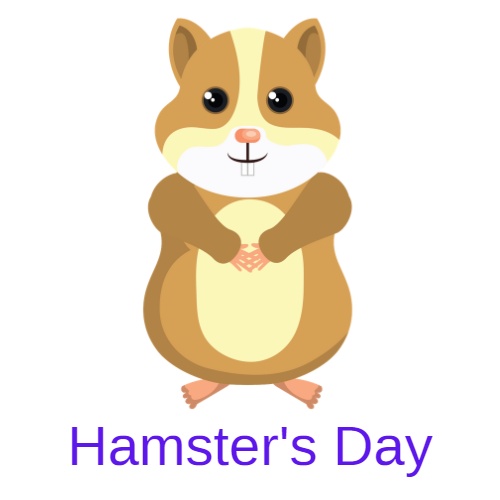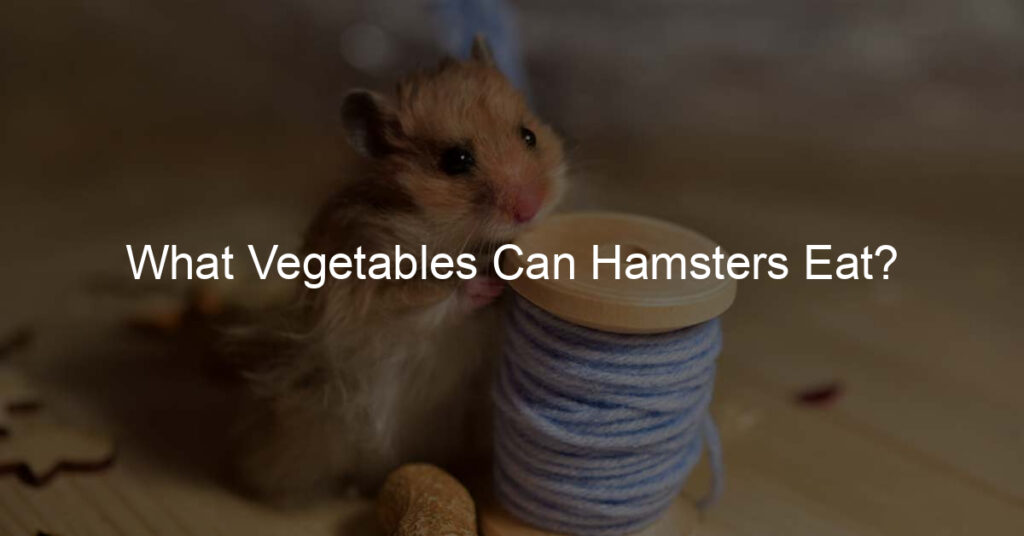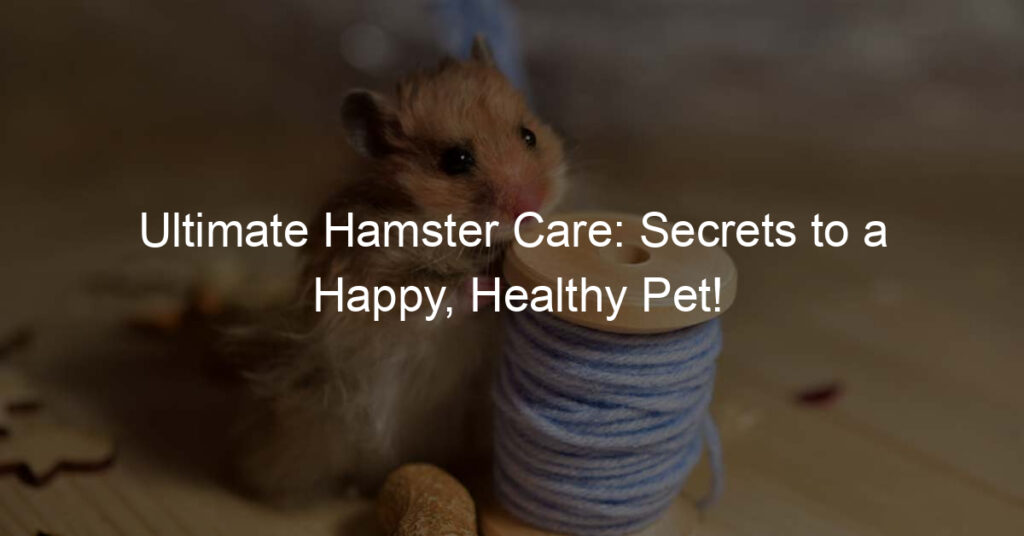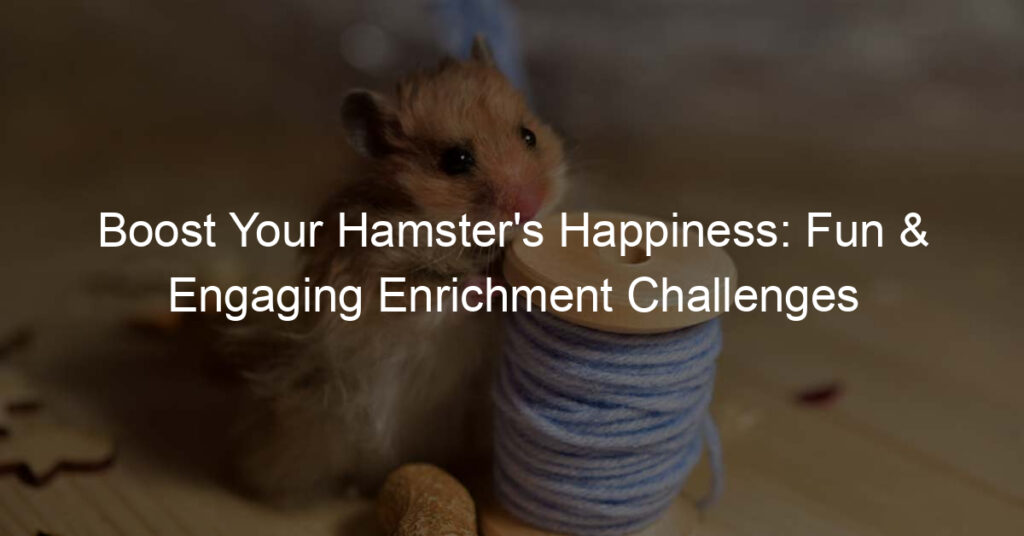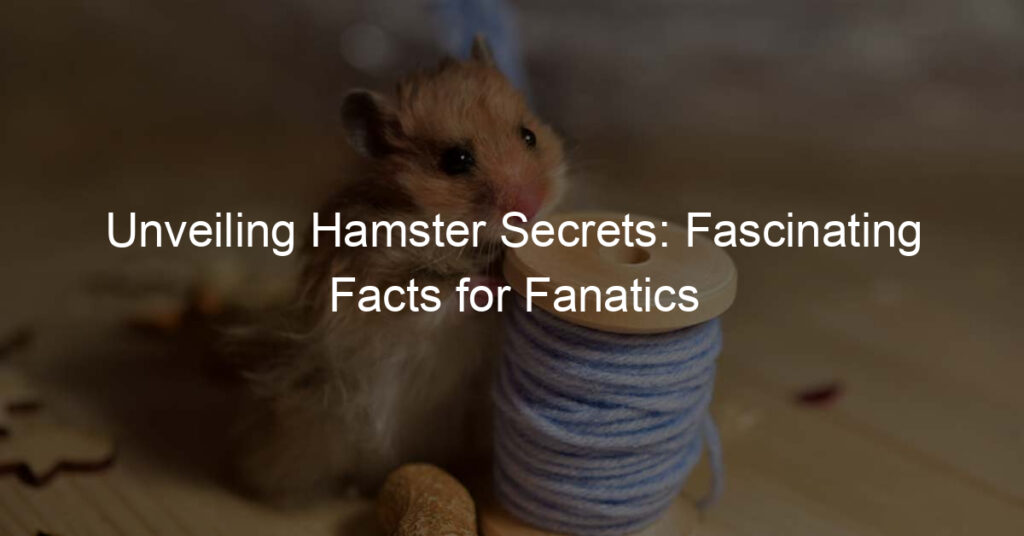Hamsters are small, furry pets that are not only cute but also have specific dietary requirements to maintain their health and well-being.
As a hamster owner, it’s important to know what vegetables are safe for your hamster to eat and which ones should be avoided. Providing a balanced diet that includes vegetables can help your hamster thrive and live a healthy life.
Understanding what vegetables can hamsters eat is essential in determining what types of vegetables are suitable for them. You may have wondered, for example, if carrots or lettuce are safe for your hamster to eat.
The good news is that there are a variety of vegetables that hamsters can safely consume, which can add nutritional value and variety to their diet.
However, it’s crucial to know which ones to avoid to prevent any health risks.
Key Takeaways
- A balanced diet, including vegetables, is essential for a healthy hamster
- There are a variety of safe vegetables for hamsters, but some should be avoided
- Proper understanding of hamster nutrition can help you make informed food choices
What Vegetables Can Hamsters Eat?
Hamsters are small, energetic creatures who require a unique mixture of nutrients for optimum health.
To maintain their overall well-being, it’s essential to provide a balanced, varied diet containing a proper blend of vitamins, minerals, proteins, fats, and fibers.
Hamsters need an adequate amount of protein to support their growth and tissue repair. Amino acids found in protein-rich foods not only aid in development but also contribute significantly to a hamster’s energy requirements.
Foods such as hay, squash, and cooked potatoes can provide this essential nutrient.
Fats are another critical component of a hamster’s diet. A sufficient amount of fat provides support for the immune system, keeps the skin and coat healthy, and even facilitates reproductive capabilities.
Vegetables like sweet potatoes can be a helpful source of healthy fats.
Vitamins and minerals are vital for maintaining a hamster’s overall health. Calcium, for example, is necessary for strong bones and teeth, while potassium aids in an array of bodily functions.
Other minerals like iron, zinc, magnesium, and manganese further add to the overall well-being of the hamster. Vegetables such as carrots, spinach, broccoli, cauliflower, cucumbers, zucchini, kale, and Swiss chard are excellent sources of these nutrients.
Aside from these, fiber plays a crucial role in a hamster’s digestive system. By including fiber-rich vegetables into their diet, you can help prevent constipation and impaction. Hay is a highly recommended source of fiber for these furry friends.
A balanced diet for hamsters includes a mix of the following vegetables:
- Leafy vegetables like cabbage, bok choy, and lettuce
- Green beans, peas, and celery
- Bell peppers and parsnips
- Eggplant, turnip, and Brussels sprouts
- Watercress, rhubarb, and courgette
In addition to providing a varied diet, it’s crucial to serve these veggies in moderation to avoid upsetting the hamster’s stomach or causing diarrhea.
By offering a diverse selection of vegetables, you’ll ensure that your hamster receives a well-rounded, nutritious diet to support their vibrant life.
Vegetables Hamsters Can Eat
Hamsters can benefit from a variety of vegetables in their diet, providing essential vitamins and minerals.
Make sure to keep the vegetable portions small and introduce them gradually to your hamster in order to avoid upsetting their stomach.
Carrots
Carrots are an excellent option for hamsters as they are rich in vitamin A, which is important for maintaining good vision and overall health. Cut small pieces of carrot for your hamster, ensuring they don’t overeat.
Broccoli
Broccoli is another beneficial vegetable for hamsters as it contains vitamin A as well as iron. Supplying your hamster with a small piece of broccoli can help support their immune system and overall health.
Spinach
Spinach is a good source of iron and vitamin A, making it a great addition to your hamster’s diet. Offer your hamster a small amount of spinach to ensure they receive essential nutrients for their well-being.
Cauliflower
Cauliflower is a low-calorie, nutrient-dense vegetable that hamsters can safely eat. It is a good source of vitamins and minerals, including vitamin C, potassium, and fiber. Be sure to provide small pieces of cauliflower to your hamster, avoiding its leaves and stem.
Cucumber
Cucumbers are safe for hamsters and provide a high water content, which can help keep your pet hydrated. However, due to their low nutritional value compared to other vegetables, cucumbers should be fed in moderation.
Peas
Peas are a good choice for hamsters as they are rich in various vitamins and minerals, such as vitamin A, C, and phosphorus. Feed your hamster a small number of peas to avoid overwhelming their digestive system.
Romaine Lettuce
Romaine lettuce is a great source of fiber and vitamin A for your hamster. Providing small amounts of romaine lettuce can aid in maintaining your hamster’s digestive health and overall well-being.
Unsafe Vegetables for Hamsters
Garlic and Onions
Although hamsters love a variety of vegetables, it’s essential to avoid feeding them garlic and onions. Both of these can be toxic for hamsters, posing risks to their health.
Moreover, these strong-smelling vegetables can have a negative effect on their digestion. It’s best to keep them off your hamster’s menu.
Raw Potatoes
While a few vegetables make great treats for hamsters, raw potatoes are not one of them. Raw potatoes contain solanine, a harmful substance that is toxic for hamsters. It’s important never to feed your hamster raw potatoes to avoid any potential health issues.
Eggplant
Eggplant is another vegetable to avoid when feeding a hamster. It is not entirely toxic for hamsters, but it is best to be cautious and avoid giving your pet this veggie. Besides, there are many other vegetables that are much better suited and safer for your hamster’s diet.
Rhubarb
Finally, rhubarb is not a safe vegetable for hamsters. It contains oxalic acid, which can be harmful to small animals like hamsters.
Feeding rhubarb to your hamster can lead to complications in their health and digestion, so ensuring it is not included in their meal plan is important.
It’s crucial to be mindful of your hamster’s diet and avoid vegetables that can be harmful, such as garlic, onions, raw potatoes, eggplant, and rhubarb.
Instead, focus on providing them with a balanced diet of safer vegetables and other hamster-safe foods to ensure they lead a healthy and happy life.
Feeding Hamsters Vegetables
Moderation and Balance
It’s essential to provide hamsters with a varied and balanced diet, including a mix of fresh vegetables.
Hamsters can enjoy several types of vegetables, such as carrots, broccoli, cauliflower, cucumber, celery, spinach, peas, kale, sweet potato, lettuce, green beans, and more.
Regardless, it’s crucial to offer these treats in moderation. Too many vegetables may lead to digestive issues or obesity. Ensure that their diet is composed of around 75% pellets and seeds with 20% fresh foods.
Freshness of Vegetables
When choosing vegetables for your hamster, always opt for fresh options—Clean and wash the vegetables properly before offering them to your pet.
Remember to remove any uneaten portions at the end of the day to prevent spoilage or bacterial growth, which could be harmful to the hamster.
Fresh vegetables are an excellent source of vitamins, fiber, and antioxidants that can support your hamster’s immune system and promote healthy digestion.
Chopping Vegetables
To make it easier for your hamster to eat and digest the vegetables, it is essential to chop them into small, manageable pieces. Chopping the vegetables also helps in portion control and ensures they can consume an appropriate amount without overeating.
This way, your hamster can enjoy a variety of vegetables while maintaining a balanced and healthy diet.
Other Parts of Hamster Diet
In addition to vegetables, hamsters also need a variety of other foods in their diet to stay healthy.
Here are some other essential parts of a balanced hamster diet:
Fruit
Hamsters can enjoy a variety of fruits as an occasional treat.
Some options include:
- Apples (without seeds)
- Bananas
- Berries (like strawberries and blueberries)
- Watermelon
- Cantaloupe
Nevertheless, it is important to avoid citrus fruits, as they can be harmful to your hamster. Remember to keep fruit servings small, as too much sugar can cause health problems.
Seeds and Pellets
Seeds and pellets are an essential part of a hamster’s diet. Many seed mixes are available at pet stores, which should be specifically formulated for hamsters.
These seed mixes usually include a blend of grains, seeds, and other ingredients that provide essential nutrients. Some examples of seeds that hamsters enjoy are:
- Sunflower seeds
- Pumpkin seeds
- Flaxseeds
Pellets, on the other hand, are compacted nuggets of nutrition designed to meet the dietary needs of hamsters. Remember that fresh seeds and pellets should make up a significant portion of your hamster’s diet.
Store Bought Food
Many store-bought hamster foods are designed to provide a balanced diet for your pet. These foods typically come in the form of pellets, seed mixes, or even a combination of both.
When choosing store-bought food, look for options specifically made for the type of hamster you have. It is essential to follow the feeding guidelines on the product to ensure your hamster gets the proper nutrition they need.
Frequently Asked Questions
Can hamsters eat broccoli and carrots?
Yes, hamsters can eat both broccoli and carrots. Yet, it is important to provide them in moderation to avoid any digestive issues. Broccoli contains essential nutrients for hamsters, and carrots are a good source of vitamins and minerals.
Just make sure to chop these vegetables into small portions to avoid choking hazards.
What fruits are safe for Syrian hamsters?
Syrian hamsters can enjoy safe fruits like apples (without seeds), pears, bananas, melons, blackberries, and figs. Always serve fruits in moderation, as too much fruit can cause diarrhea and other health issues.
Also, make sure to remove seeds and eliminate pesticide residue by washing the fruits thoroughly.
Are grapes and strawberries okay for hamsters?
Although strawberries are safe for hamsters, grapes are not recommended. Grapes and raisins can be harmful to your hamster’s kidneys, so it is better to avoid them.
On the other hand, strawberries are safe in small quantities, as they can provide necessary vitamins and minerals.
What vegetables can be given daily to hamsters?
Some vegetables that can be given daily to hamsters include cucumbers, bell peppers, kale, spinach, zucchini, and squash. These veggies are packed with essential nutrients for your furry friend’s health.
Remember to provide portions in moderation and to avoid overfeeding to prevent digestive issues in your hamster.
Is human food appropriate for hamsters?
It depends on the type of human food. Some foods, like vegetables, fruits, and certain types of nuts or seeds, are safe for hamsters in moderation.
However, avoid giving them processed foods, and high-fat or high-sugar treats, as these can be harmful to your hamster and lead to health issues.
What is the best food for a hamster?
The best food for a hamster would be a mix of commercial hamster pellets, fresh vegetables, and some fruits. High-quality hamster pellets provide a balanced diet with essential nutrients, while vegetables and fruits can offer additional vitamins, minerals, and fiber.
Make sure to vary the fruits and vegetables to give your hamster a diverse and nutrient-rich diet.
